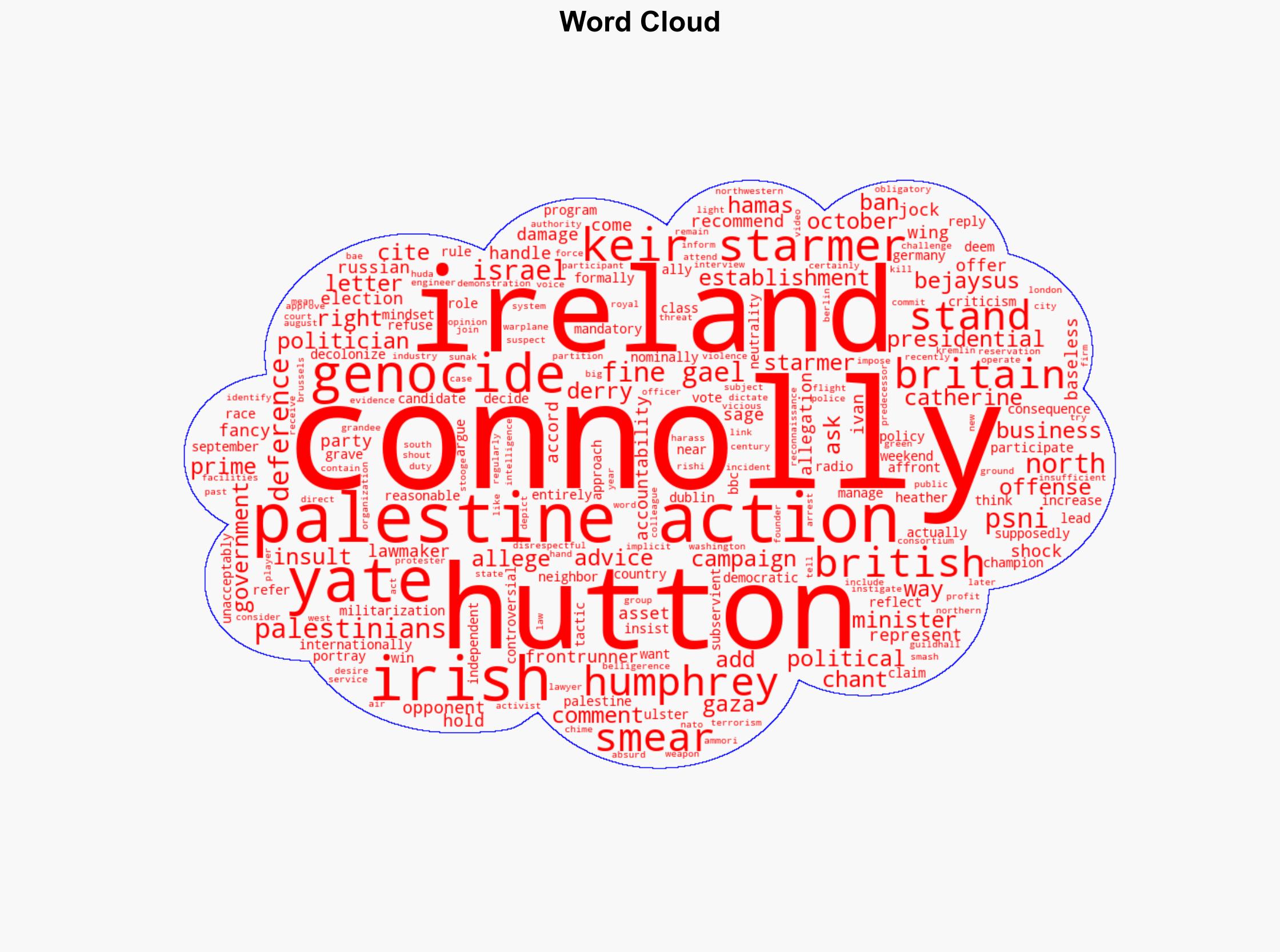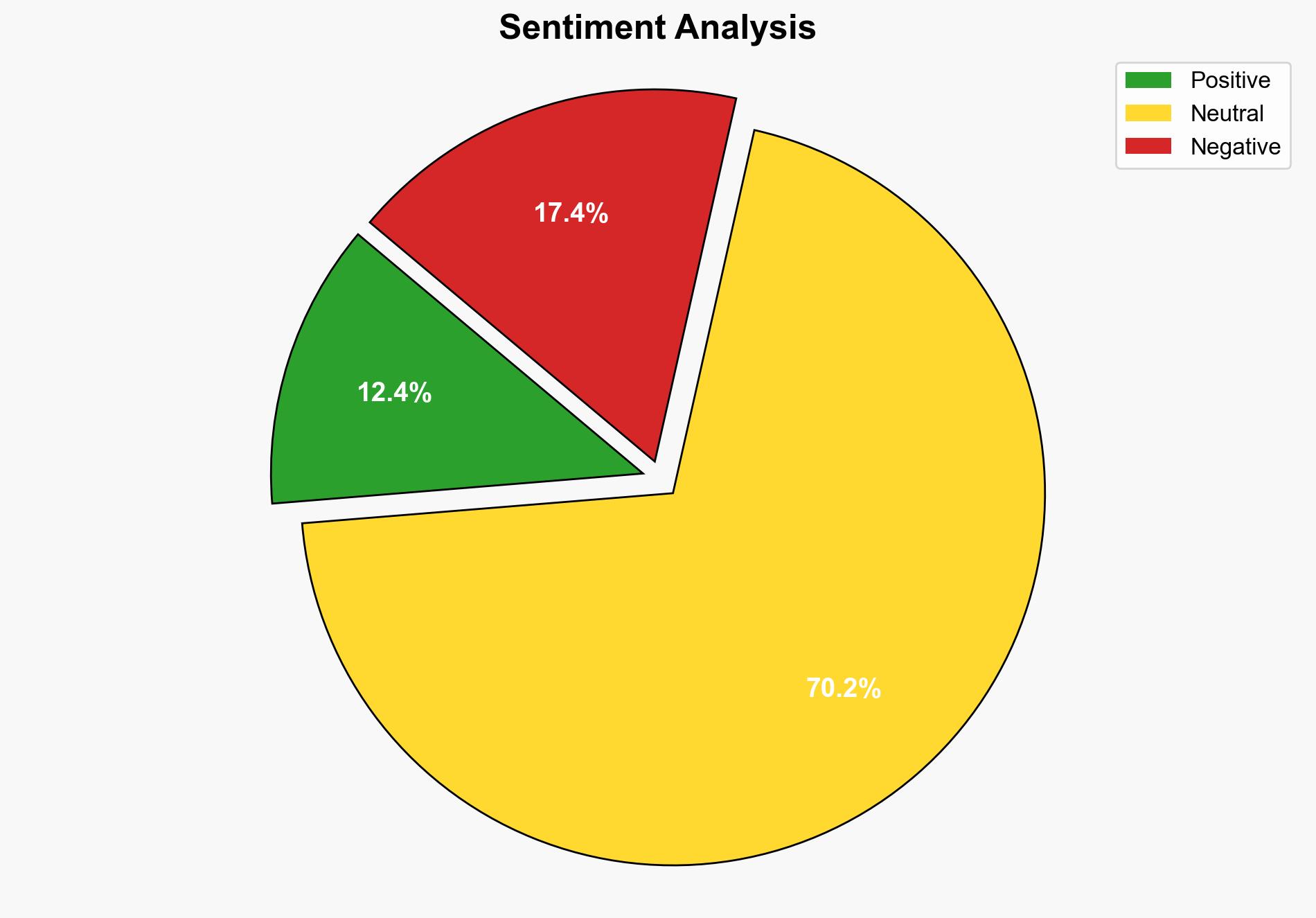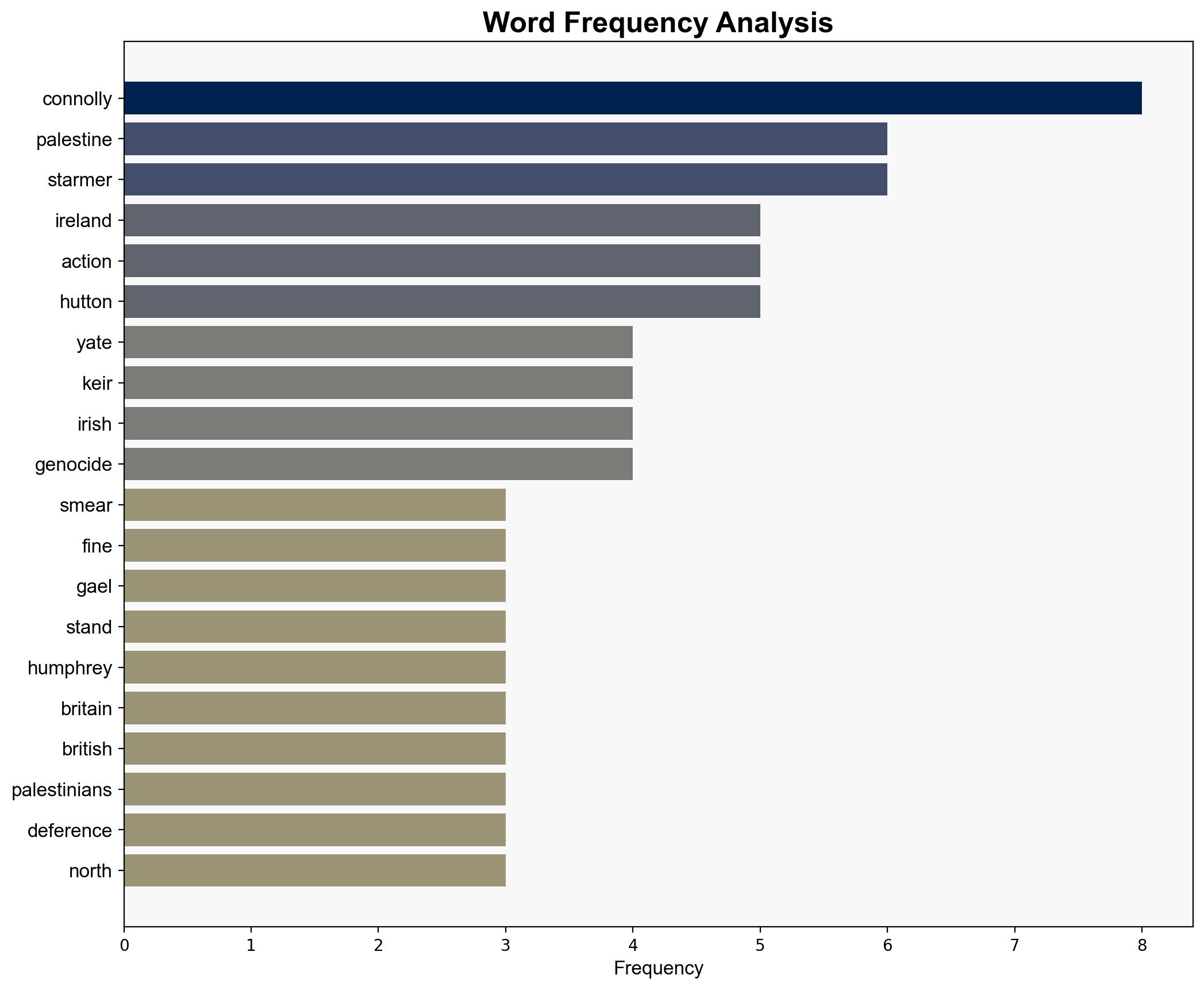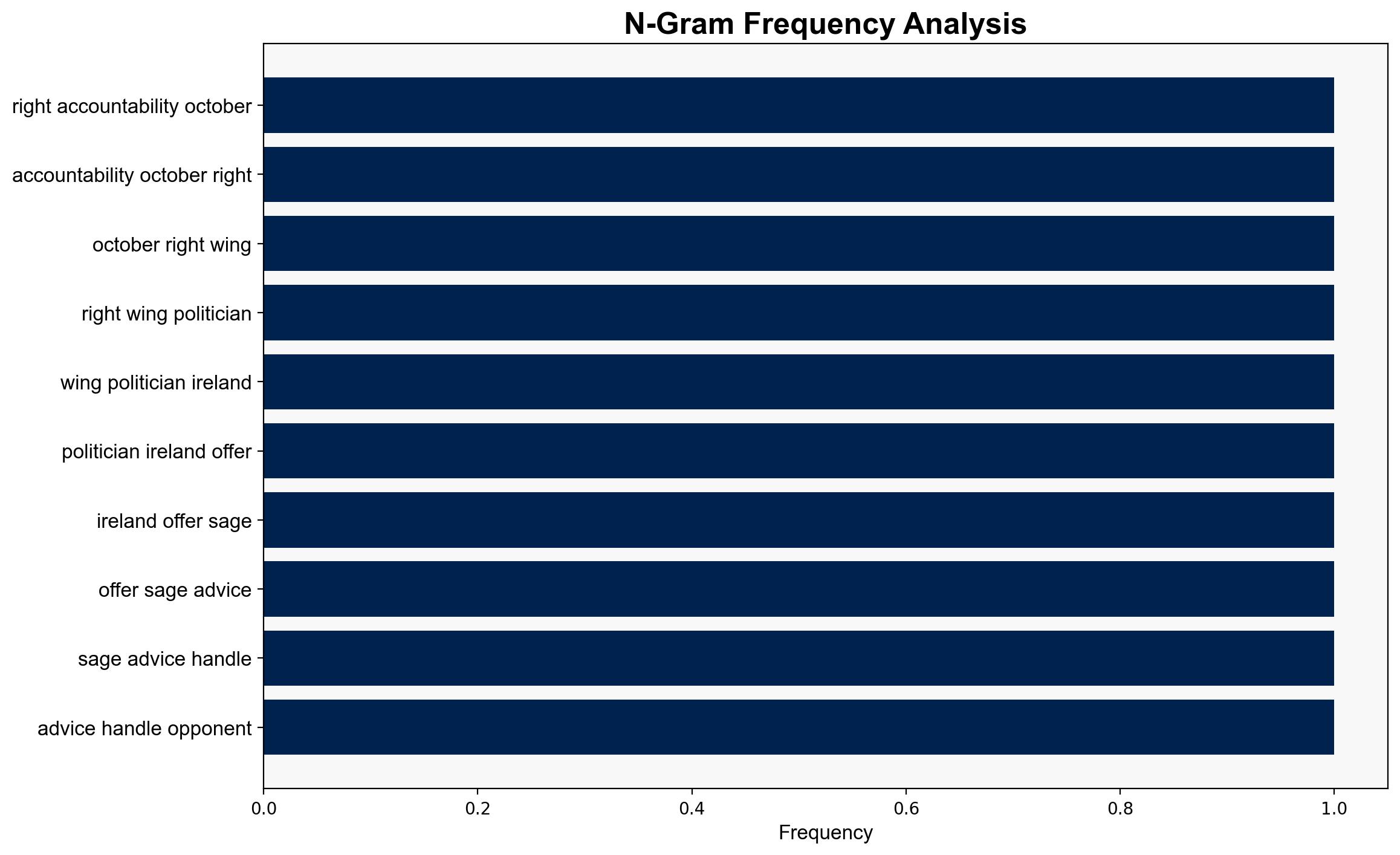Ireland must not be intimidated by Britain’s stance on Palestine – Electronicintifada.net
Published on: 2025-10-16
Intelligence Report: Ireland must not be intimidated by Britain’s stance on Palestine – Electronicintifada.net
1. BLUF (Bottom Line Up Front)
The analysis suggests that Ireland’s political stance on Palestine, particularly in response to Britain’s actions, is influenced by internal and external pressures. The most supported hypothesis is that Ireland’s political establishment is attempting to balance international relations with domestic public opinion, which is largely in favor of neutrality. Confidence in this hypothesis is moderate due to potential biases and limited data. It is recommended that Ireland maintains its stance on neutrality while engaging in diplomatic dialogue to mitigate tensions.
2. Competing Hypotheses
1. **Hypothesis A**: Ireland’s political establishment is primarily motivated by a desire to maintain its traditional stance of neutrality and independence in foreign policy, resisting external pressures from Britain and other Western allies.
2. **Hypothesis B**: Ireland’s political actions are influenced by a need to align with Western allies, including Britain, due to geopolitical and economic dependencies, despite public opinion favoring neutrality.
Using ACH 2.0, Hypothesis A is better supported as it aligns with Ireland’s historical stance on neutrality and public sentiment. However, Hypothesis B cannot be entirely dismissed due to economic ties and geopolitical realities.
3. Key Assumptions and Red Flags
– **Assumptions**: It is assumed that Ireland’s public opinion significantly influences political decisions. Another assumption is that Ireland’s economic ties with Britain do not outweigh its commitment to neutrality.
– **Red Flags**: The potential bias in the source, given its focus on Palestinian advocacy, could skew the portrayal of events. The lack of direct statements from key Irish political figures on the matter is a critical gap.
4. Implications and Strategic Risks
– **Geopolitical Risks**: A shift in Ireland’s stance could strain relations with Britain and other Western allies, potentially impacting trade and diplomatic relations.
– **Domestic Risks**: Ignoring public sentiment could lead to political instability or increased support for opposition parties advocating for neutrality.
– **Escalation Scenarios**: Increased tensions could lead to diplomatic disputes or economic repercussions if Ireland is perceived as aligning too closely with or against Western policies.
5. Recommendations and Outlook
- Maintain a policy of neutrality while engaging in diplomatic discussions with Britain to address concerns and reduce tensions.
- Enhance public communication strategies to clarify Ireland’s stance and address public concerns.
- Scenario Projections:
- **Best Case**: Ireland successfully navigates diplomatic tensions, maintaining strong international relations and domestic support.
- **Worst Case**: Economic and diplomatic fallout from perceived alignment with or against Western policies.
- **Most Likely**: Continued diplomatic dialogue with minor adjustments to foreign policy to balance international and domestic pressures.
6. Key Individuals and Entities
– Ivan Yate
– Catherine Connolly
– Heather Humphrey
– Keir Starmer
– Catherine Hutton
– Huda Ammori
7. Thematic Tags
national security threats, geopolitical strategy, diplomatic relations, public opinion, foreign policy




